Dorothy Livesay and "Call My People Home" (with audio recording)
Cheryl Cundell, Queen’s University
Dorothy Livesay (1909-96) is best remembered as a poet. Although she was a 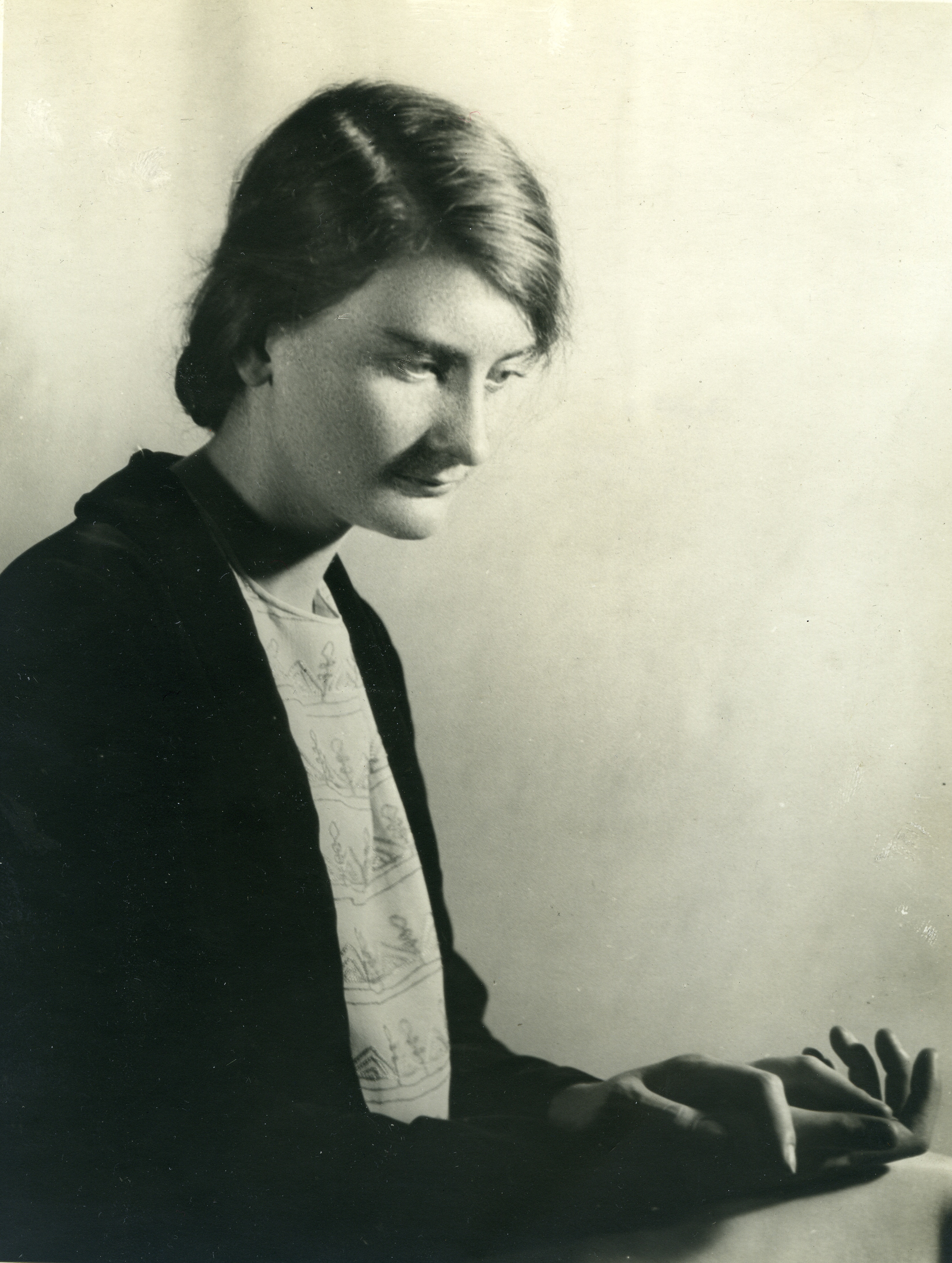 writer of prose—autobiography, collage, drama, literary criticism, journalism, a novella, and short stories—she is celebrated for the poetry that she published over seven decades. Besides the various Canadian periodicals that printed her individual poems (Canadian Forum, Chatelaine, and Contemporary Verse, to name but a
writer of prose—autobiography, collage, drama, literary criticism, journalism, a novella, and short stories—she is celebrated for the poetry that she published over seven decades. Besides the various Canadian periodicals that printed her individual poems (Canadian Forum, Chatelaine, and Contemporary Verse, to name but a 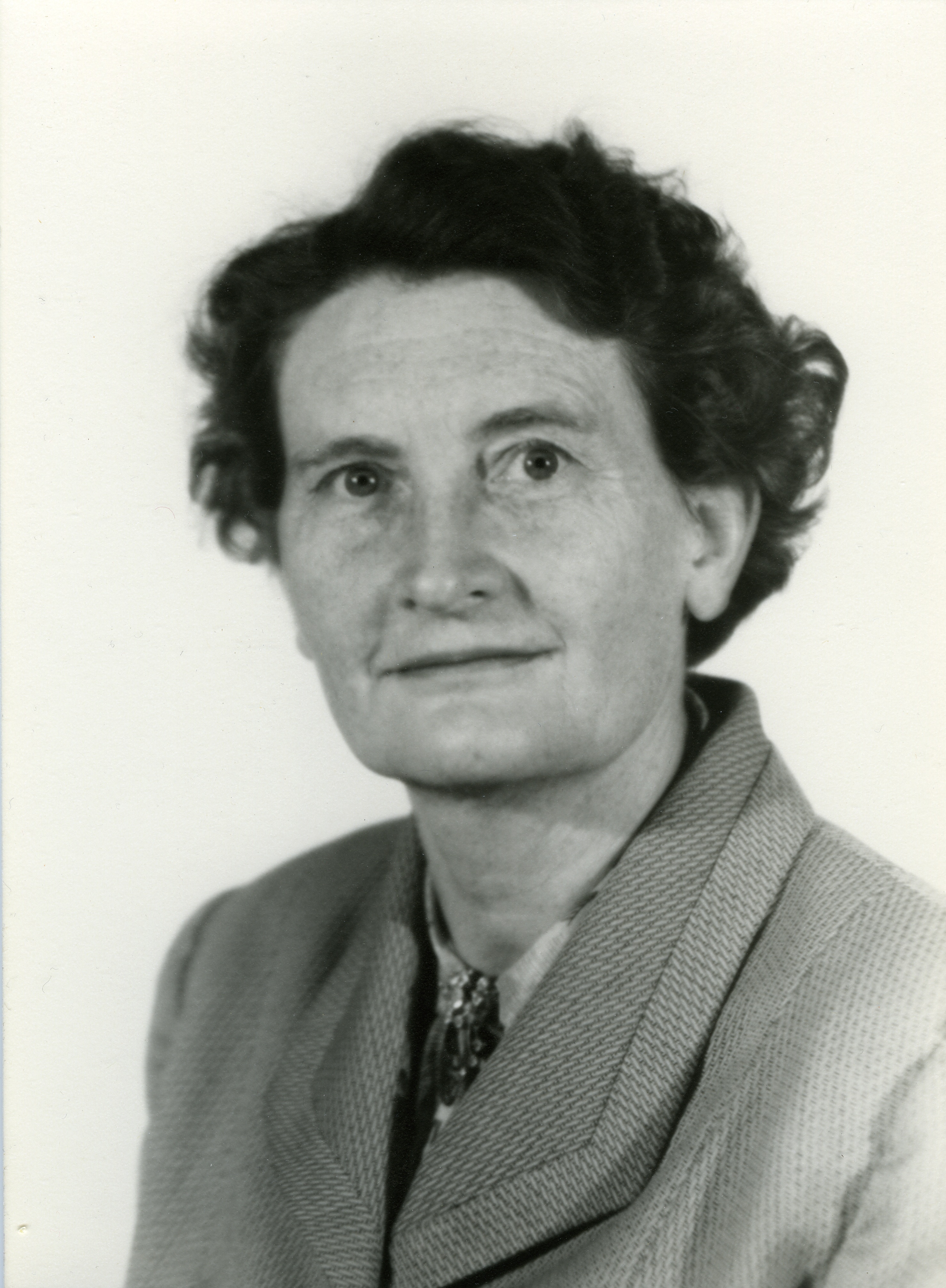 few), Livesay’s books of poetry were issued by a number of Canadian publishers: Blackfish, Black Moss, Coach House, Emblem, Fiddlehead Poetry Books, McGraw-Hill Ryerson, Macmillan of Canada, Porcépic, Ryerson, Turnstone, and the Unitarian Service Committee.
few), Livesay’s books of poetry were issued by a number of Canadian publishers: Blackfish, Black Moss, Coach House, Emblem, Fiddlehead Poetry Books, McGraw-Hill Ryerson, Macmillan of Canada, Porcépic, Ryerson, Turnstone, and the Unitarian Service Committee.
Published by Macmillan of Canada, Livesay’s first two collections of poetry, Green Pitcher (1923) and Signpost (1932), stand apart from much of her later work, for they are comprised of poems that are imagistic and lyrical. Although Livesay’s concern with the musicality of poetry persists in her work and her interests in nature and women’s sexuality provide continuity 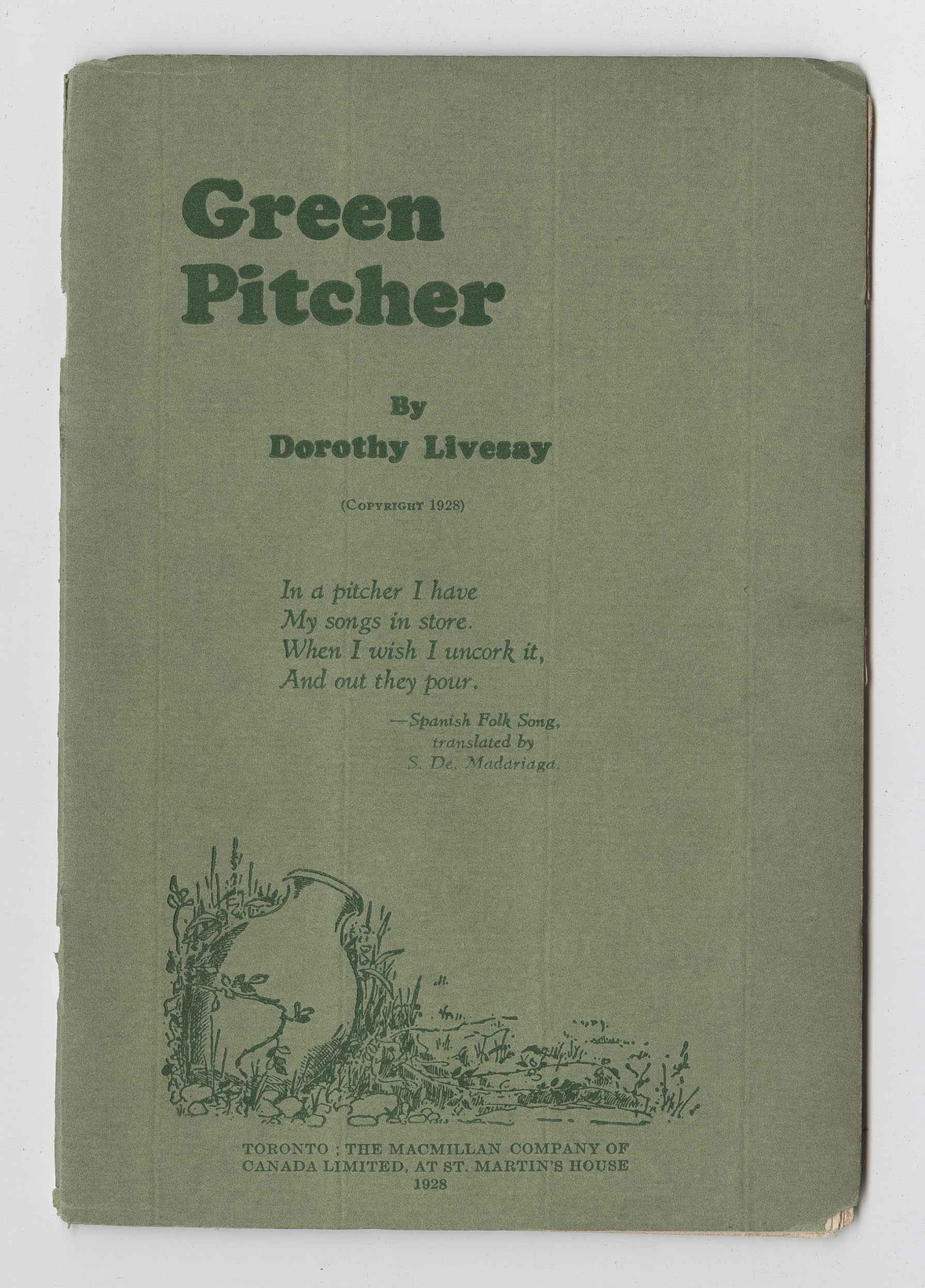 between these early poems and her much later writings, during the 1930s, Livesay underwent a radical shift in poetic perspective coincident with and reflective of her involvement in social work and her membership in the Young Communist League. During this time she published poems expressing her social and political concerns in the Canadian leftist periodicals Masses and New Frontier. These new works were not, however, available in book form until 1944, twelve years after the publication of Signpost.
between these early poems and her much later writings, during the 1930s, Livesay underwent a radical shift in poetic perspective coincident with and reflective of her involvement in social work and her membership in the Young Communist League. During this time she published poems expressing her social and political concerns in the Canadian leftist periodicals Masses and New Frontier. These new works were not, however, available in book form until 1944, twelve years after the publication of Signpost.
Livesay’s third collection of poetry, Day and Night (1944) was published by Ryerson Press and distributed in the U.S. by Bruce Humphries of 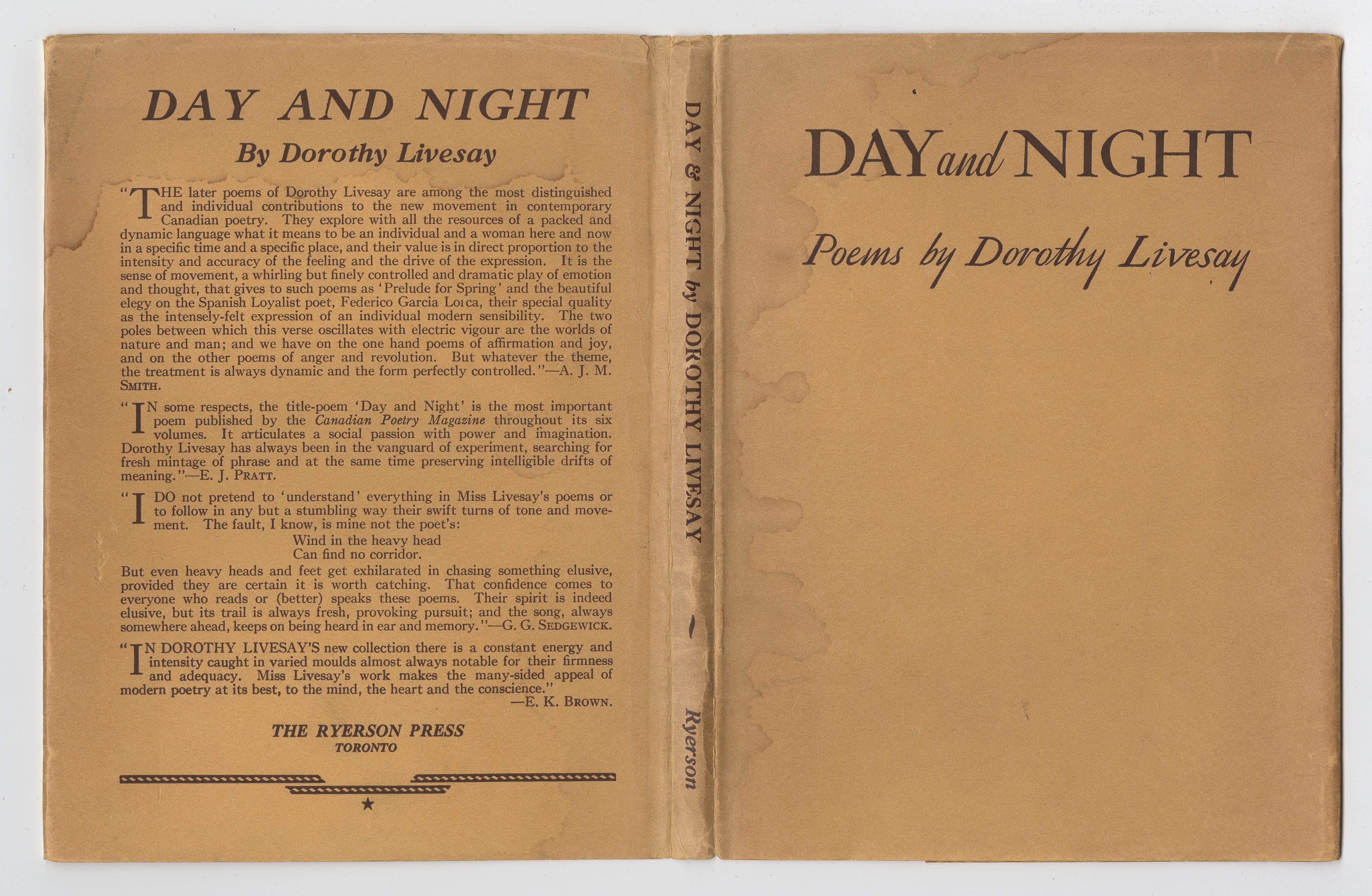 Boston. Although the book’s title poem was first printed in 1936 in Canadian Poetry Magazine, edited by E. J. Pratt, it offered an example of Livesay’s new poetics, for it employed agitprop (agitation propaganda) techniques and expressed proletarian concerns. A protest against the mechanisation of human existence, the poem employs the rhythms and call and response of African-American spirituals to speak out for the possibility of positive change in factory working conditions resulting from worker solidarity. For Day and Night, Livesay received a Governor General’s Award, as she did for her fourth collection, Poems for People (1947), also published by Ryerson.
Boston. Although the book’s title poem was first printed in 1936 in Canadian Poetry Magazine, edited by E. J. Pratt, it offered an example of Livesay’s new poetics, for it employed agitprop (agitation propaganda) techniques and expressed proletarian concerns. A protest against the mechanisation of human existence, the poem employs the rhythms and call and response of African-American spirituals to speak out for the possibility of positive change in factory working conditions resulting from worker solidarity. For Day and Night, Livesay received a Governor General’s Award, as she did for her fourth collection, Poems for People (1947), also published by Ryerson.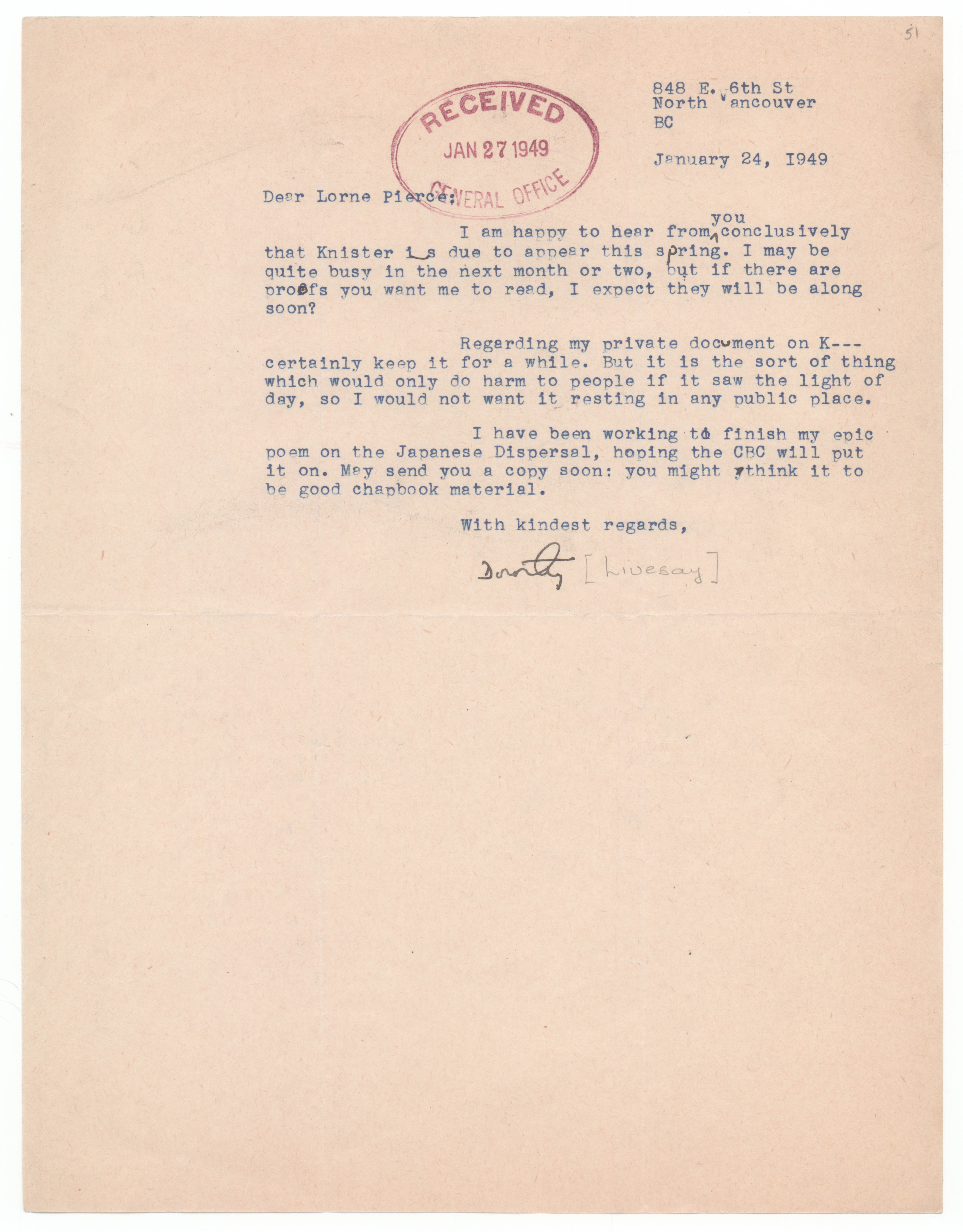
After these two award-winning volumes, Ryerson published several more poetry collections by Livesay, but immediately following Poems for People, at Livesay’s suggestion, Ryerson editor Lorne Pierce included her work in the Ryerson Poetry Chapbook series. Chapbook number 143, Call My People Home (1950), featured Livesay’s dramatic, documentary long poem of the same name and also included eight new short poems. Part of Livesay’s oeuvre dedicated to speaking out against social injustice, “Call My People Home” recalls the African-American spiritual “Let My People Go,” and its Exodus origins, to 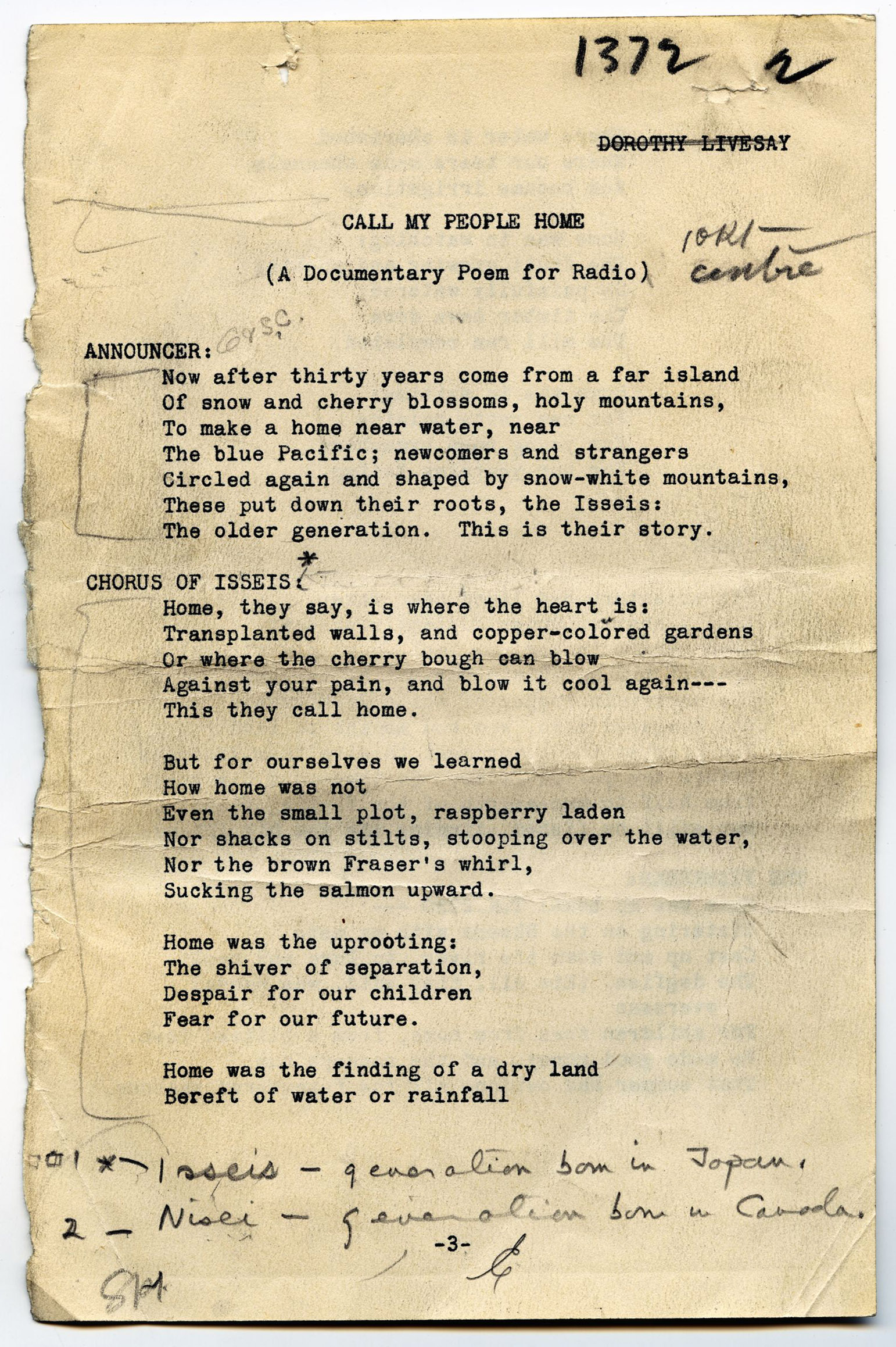 address the forced removal of Japanese-Canadians from the British Columbian coast and their internment as enemy aliens in the B.C. interior during the Second World War. The poem is structured in speaking parts—Japanese-Canadian fishermen, a boy and girl, husband and wife, mayor and philosopher—with an announcer functioning as narrator, and two choruses, one of Isseis and one of Niseis, the Japanese-born and Canadian-born Japanese-Canadians, respectively, as the initial chapbook notes indicate. The poem’s structure is such because Livesay had written it for radio production, and before it saw publication by Ryerson, it had not only been published in Alan Crawley’s
address the forced removal of Japanese-Canadians from the British Columbian coast and their internment as enemy aliens in the B.C. interior during the Second World War. The poem is structured in speaking parts—Japanese-Canadian fishermen, a boy and girl, husband and wife, mayor and philosopher—with an announcer functioning as narrator, and two choruses, one of Isseis and one of Niseis, the Japanese-born and Canadian-born Japanese-Canadians, respectively, as the initial chapbook notes indicate. The poem’s structure is such because Livesay had written it for radio production, and before it saw publication by Ryerson, it had not only been published in Alan Crawley’s 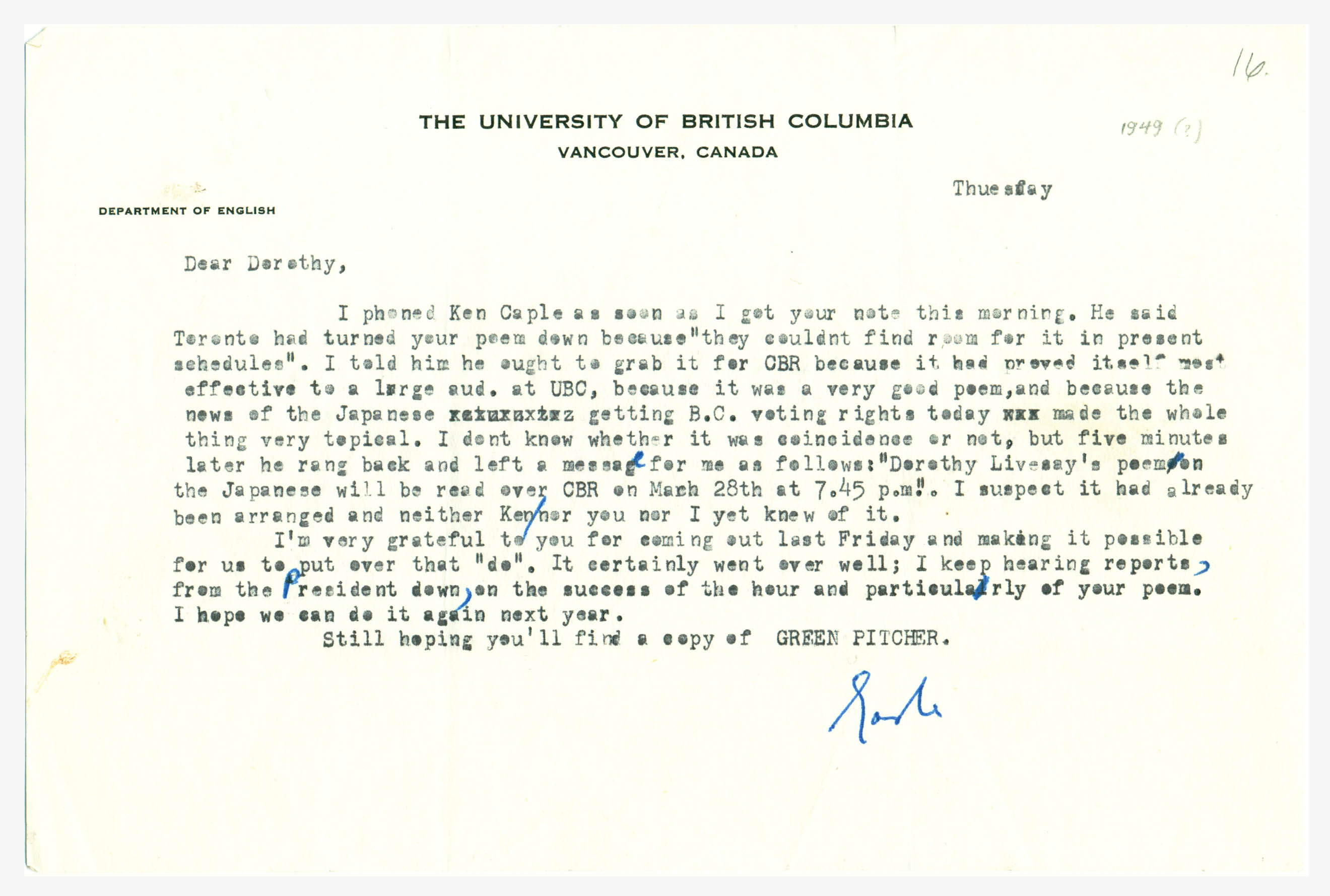 September 1949 issue of Contemporary Verse (the forerunner of Livesay’s CV II), but it had also been broadcast by the CBC: first, in 1949, in a shortened version, then in full version, thanks to the aid of Earle Birney, and, finally, again in full, in 1954. In 1968, Ryerson collected some of Livesay’s poetry of the 1930s and 40s for The Documentaries; both “Day and Night” and “Call My People Home” appeared in the collection—as documents of the times.
September 1949 issue of Contemporary Verse (the forerunner of Livesay’s CV II), but it had also been broadcast by the CBC: first, in 1949, in a shortened version, then in full version, thanks to the aid of Earle Birney, and, finally, again in full, in 1954. In 1968, Ryerson collected some of Livesay’s poetry of the 1930s and 40s for The Documentaries; both “Day and Night” and “Call My People Home” appeared in the collection—as documents of the times.
Livesay, Dorothy. “The Documentary Poem: A Canadian Genre.” In Contexts of Canadian Criticism: A Collection of Critical Essays, ed. Eli Mandel, 267-81. Toronto: University of Toronto Press, 1977.
—. The Documentaries. Toronto: Ryerson, 1968.
Ricketts, Alan. “Dorothy Livesay: An Annotated Bibliography.” In The Annotated Bibliography of Canada’s Major Authors, ed. Robert Lecker and Jack David, 4: 129-203. Toronto: ECW, 1983.
Macmillan Company of Canada fonds, McMaster University
Lorne Pierce fonds, Queen’s University Archives
Lorne and Edith Pierce collection, Queen’s University Archives
Dorothy Livesay fonds, Queen’s University Archives


![A poetry reading by Dorothy Livesay [audio recording] / Dorothy Livesay](/sites/default/files/styles/thumbnail/public/canpub/CP01042.jpg?itok=dvoutGBK)












